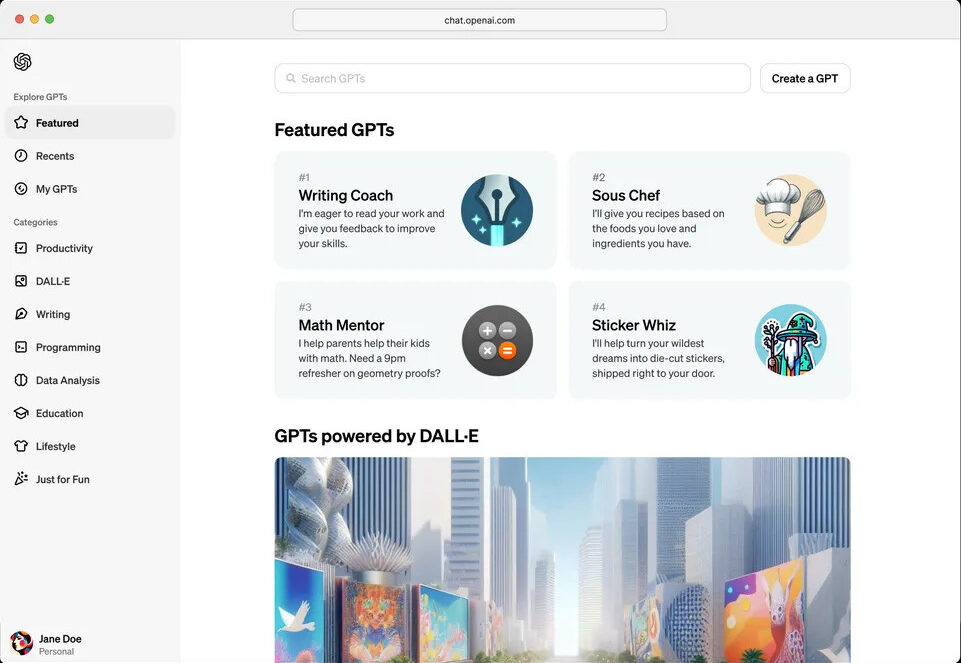OpenAI’s first developer conference concluded earlier today with a host of notable announcements, mostly focusing on new features for ChatGPT. One of the most significant feature updates to ChatGPT is the ability to make customized GPTs tailored to specific needs.
According to OpenAI, users can now make a customized version of ChatGPT for specific tasks. These can be designed to help with daily life or simply as a tool to help save time. For instance, a custom GPT could be created to explain the rules of a board game or to create stickers for chatting apps.

Here is what OpenAI says about GPTs on its blog:
Since launching ChatGPT people have been asking for ways to customize ChatGPT to fit specific ways that they use it. We launched Custom Instructions in July that let you set some preferences, but requests for more control kept coming. Many power users maintain a list of carefully crafted prompts and instruction sets, manually copying them into ChatGPT. GPTs now do all of that for you.
Creating these chatbots will be quite simple as no coding is required. This can be done by simply starting a conversation, giving out instructions, describing the chatbot’s purpose, and assigning its abilities such as browsing the web, analyzing data, or making images.
OpenAI assures that custom GPTs will maintain privacy and security and none of the chats will be shared with the creators. Users will also be able to choose whether their data is sent to the API. The custom chatbots will also have to adhere to OpenAI’s usage policies.
GPT Store
The best part is that all of these custom chatbots can be shared publicly with others through a GPT Store. This store is planned to roll out later this month and it will allow people to browse other users’ creations and share their own. But note that only verified builders will be able to share their work.
The OpenAI blog reads:
We believe the most incredible GPTs will come from builders in the community. Whether you’re an educator, coach, or just someone who loves to build helpful tools, you don’t need to know coding to make one and share your expertise.
Once a GPT has been uploaded to the store, it can climb the leaderboards based on its popularity. OpenAI will also highlight the best GPTs it comes across in categories like productivity, education, and “just for fun”. Better yet, users can even earn money based on how many people use their GPT.






